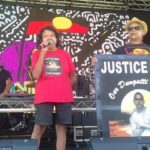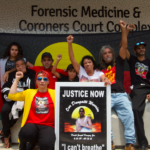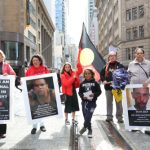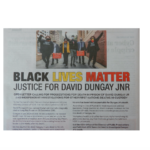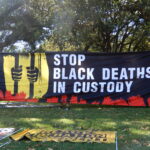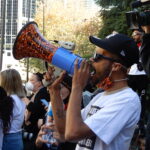Justice Goes Unserved for David Dungay, as George Floyd’s Killer Is Convicted
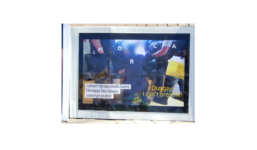
Then Minneapolis police officer Derek Chauvin knelt on the neck of African American man George Floyd for 9 minutes and 29 seconds until he stopped breathing on 25 May last year.
Captured on footage, the killing sparked Black Lives Matter uprisings across the US, as well as protests globally.
In this country, Floyd’s untimely death led to a series of BLM protests focused on the systemic racism and violence First Nations people are subjected to at the hands of law enforcement and corrections. While these demonstrations weren’t new, there was a marked increase in broader support.
Central to the local demonstrations was the killing of David Dungay Junior at the hands of prison guards in Sydney’s Long Bay Gaol on 29 December 2015. Just like Floyd, the Dunghutti man cried out repeatedly that he couldn’t breathe until he died beneath his aggressors.
Last week in the US, Chauvin was found guilty on two counts of murder and one of manslaughter. Yet, five years on and after a coronial inquest, a persistent public campaign and prominent legal recommendations, no one has been held to account for the death of David Dungay Junior.
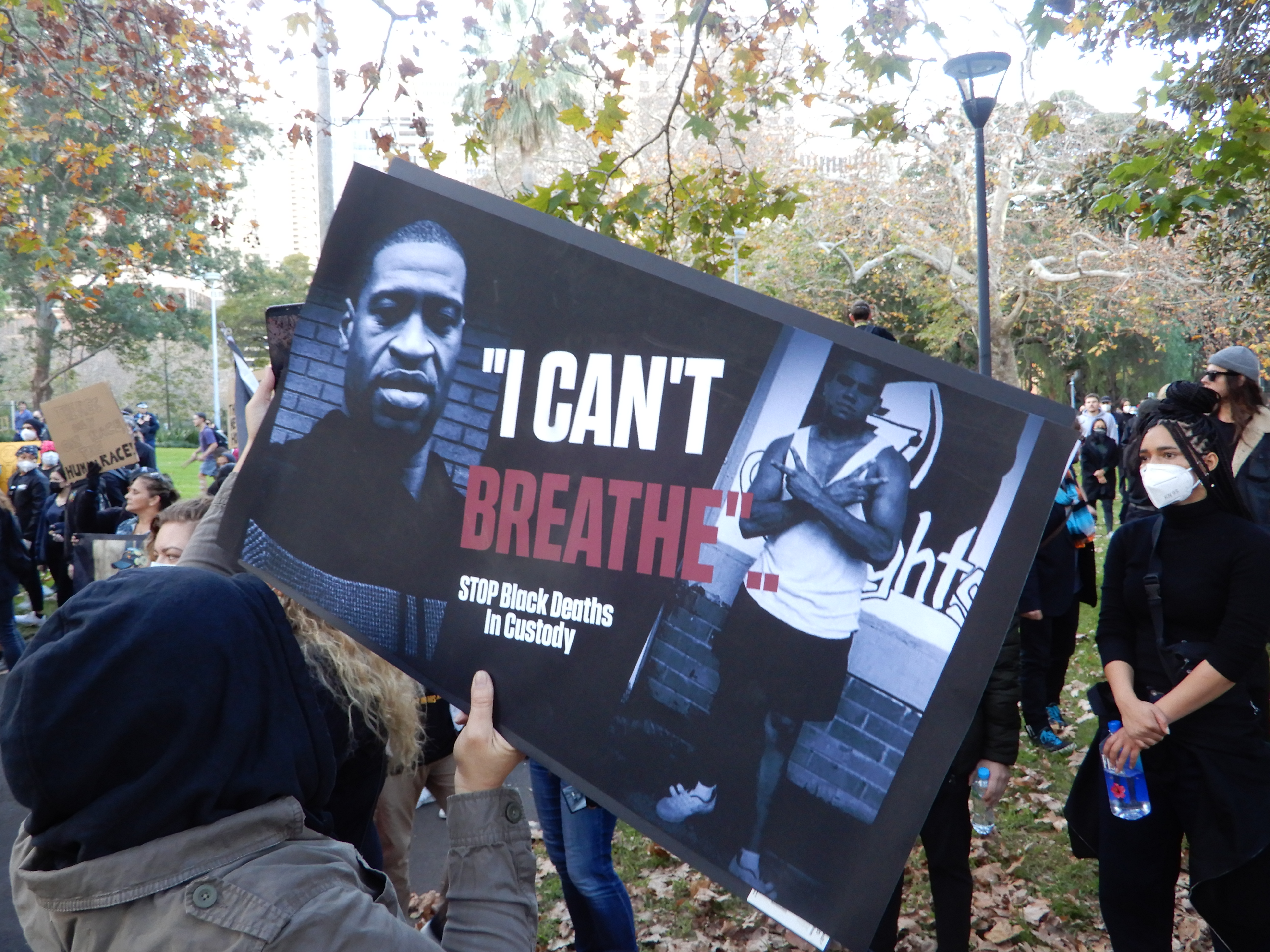
A prejudicial system
“Why won’t the DPP even investigate charges in my son’s case?” asked Leetona Dungay, David’s mother, on the day following Chauvin’s conviction. “Why won’t the attorney-general and the NSW premier take action to fix this injustice?”
And many are asking the same questions.
Dungay was alone in a cell in the Long Bay hospital ward eating a packet of biscuits. As he was a diabetic, some nurses became concerned about his blood sugar levels, which resulted in six Immediate Action Team officers storming the cell and dragging him down a hallway.
In another cell, the 26-year-old was held face down on a bed in the potentially fatal prone position. He called out repeatedly that he couldn’t breathe, as officers pressed upon his back. Eventually, a nurse was called in to inject Dungay with a sedative just before he stopped breathing entirely.
“If six Aboriginal men had held a white man down until he died, they would have been charged immediately,” Aunty Leetona further made clear.
The coroner found low oxygen levels in his blood “caused by prone restraint, and extreme stress and agitation as a result of the use of force and restraint” contributed to David’s death. And while recommendations were made, none involved the consideration of criminal charges.
“The failure of the NSW government to take any action on David’s case highlights that Australia is lagging behind, even the USA, when addressing systemic racism in this country,” last week remarked National Justice Project director George Newhouse, who’s been representing the Dungay family.
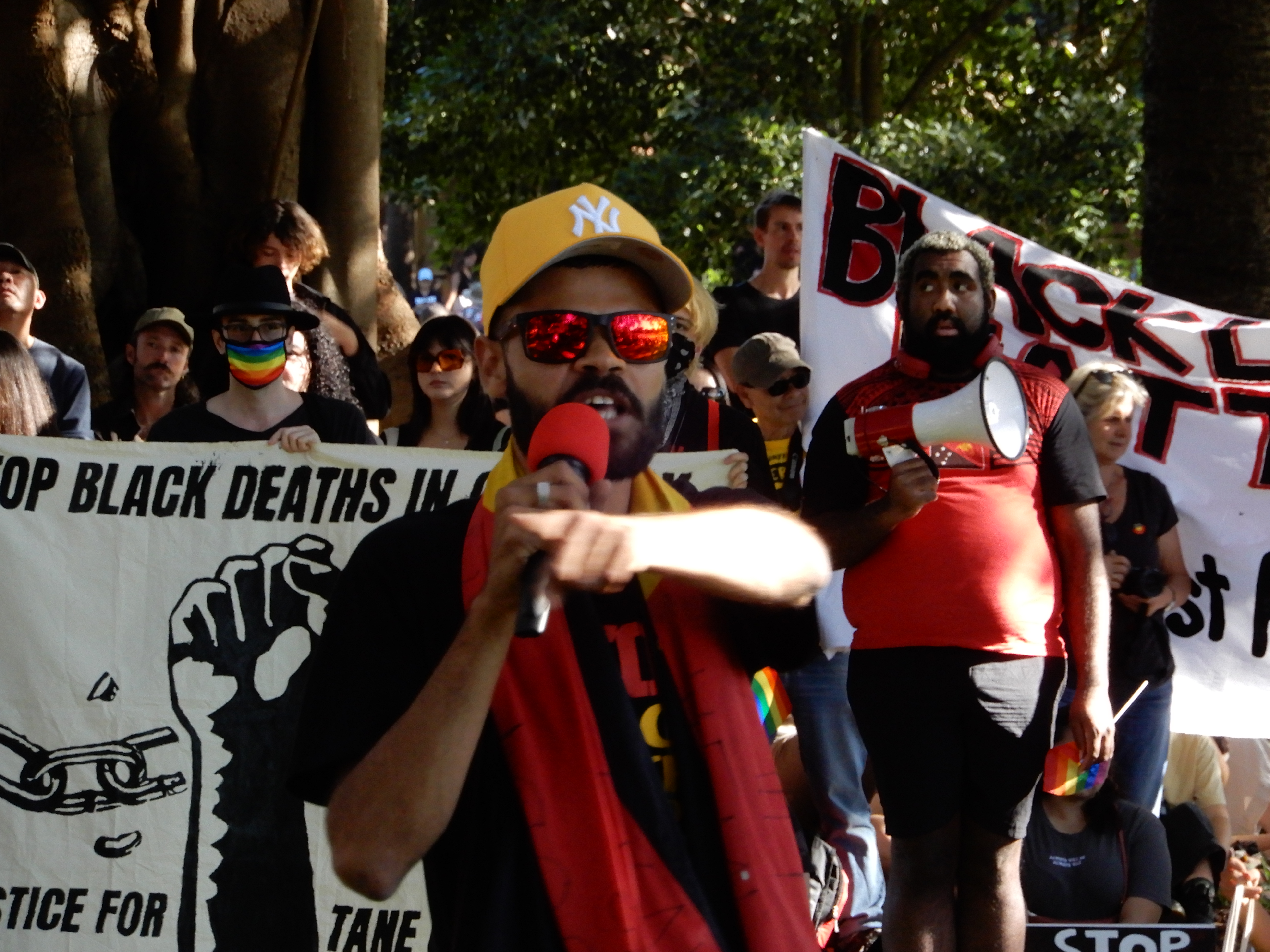
Further denials
“We had a senior criminal barrister look through the evidence passed down by the coronial inquiry,” Paul Silva told the Stop Black Deaths in Custody rally this month. “In that advice, it states that Corrective Services NSW and Justice Health staff can be charged with assault and/or manslaughter.”
Silva is David Dungay’s nephew. The Dunghutti man has been persistently campaigning for justice to be served over his uncle’s death for the last five years. And he was referring to advice that prominent criminal barrister Phillip Boulten SC set out for the Dungay family mid-last year.
“We have forwarded that on to the Director of Public Prosecutions in our quest for justice for David,” Silva continued. “Although, they rejected that request.”
The activist further related that the Dungay family has requested that SafeWork NSW investigate his uncle’s death, as it took place in a workplace environment. However, the state government’s health and safety regulator has refused this request on two occasions.
A crisis in custodial deaths
The calls for a proper criminal investigation into the death of David Dungay Junior goes much further than his family. Last year, over 113,000 people signed a petition calling for those involved in David’s death to be brought to justice either via the DPP or SafeWork.
Silva was speaking at a protest rally marking 30 years since the Royal Commission into Aboriginal Deaths in Custody handed down its 339 recommendations. David is one of over 470 First Nations people who have died whilst in the custody of Australian law enforcement or corrections since 1991.
Just this week, two more Aboriginal custodial deaths have taken place. This brings the total number of First Nations people who have died in custody over the last two months to a total of seven.
And a number of family members have this week condemned PM Scott Morrison for ignoring this crisis.
“You would think 30 years on from a Royal Commission into Aboriginal Deaths in Custody that the government would get off their fucking arses and take drastic action in regard to these events,” Silva said over the microphone at the 10 April demonstration.
“But, no, they sit down on their backsides, get highly paid, and are watching human beings die.”


